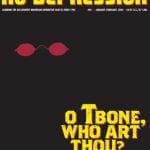Mindy Smith – A cautionary tale
Most artists dream of that moment when it becomes apparent people are responding to what they’ve created. Mindy Smith had been impressing Nashville nightclub audiences for a couple of years by 2002. Then came the crystallizing moment: All of a sudden, one recording offer after another arrived in a span of a few weeks.
After several years of frustration, she found herself meeting with the most successful record executives in Nashville. Tony Brown of Universal South persistently chased her, attending her shows, leaving her messages, introducing her to his staff. Paul Worley, whose success as a producer of the Dixie Chicks and Martina McBride led him to the top creative post at Warner Bros. Nashville, tempted her with a lucrative proposal. DreamWorks honcho James Stroud, riding high on the success of Toby Keith and Darryl Worley, pursued Smith with similar zeal.
But Smith knew that in the big business of modern entertainment, a promising deal could quickly turn into a dead end that hurt rather than helped a career. A few years earlier, she’d locked herself into a contract with top Christian song publisher Word Music, a company that didn’t understand her music and ultimately did nothing to help her, she claims. “I got screwed bad,” she says flatly.
Smith also witnessed the horror stories of up-and-coming artists who sign attractive major-label deals, only to languish in a creative deadlock with the powers-that-be. So she greeted her major-label suitors with gracious caution.
“So here I am, little me, and I’m sitting there with the big dogs, you know?” Smith says, leaning forward in an engaging, unguarded, no-bullshit style, her speedy, staccato speech still carrying a hint of her Long Island upbringing. “I looked them in the face and said, ‘What are you saying, you want to give me a deal? Well, I’ll tell you this much about me. I’m not going to record other people’s songs. I’m not going to co-write. I’m not going to change my songs to make them fit the radio or whatever. I’m not going to sit in a room for two years writing more songs until someone thinks I’ve got my first single.'”
Even when the offers stayed on the table, Smith remained anxiety-ridden. “I almost went crazy trying to decide what to do,” she says, twirling a straw on a marked-up wooden table in a Nashville coffeehouse. “I felt a lot of positive energy from the meetings I had. I felt so blessed. But I’ve learned to go with my gut feeling.”
Her instincts kept pulling her toward Vanguard Records, a longstanding independent that in recent years has re-established a roster of distinctive singer-songwriters. “I felt drawn to an independent label because, with everything going on in the music industry, I felt more security there,” Smith says. “I felt like if my first record didn’t do well, they’d let me make a second one. I wanted security, not pressure. It wasn’t a money issue for me. It was a longevity issue. I felt more comfortable with Vanguard and with how they operate.”
With the January 27 release of her debut, One Moment More, Smith is convinced she made the right choice. “I hope it doesn’t make me sound full of myself, but this record is pretty much me,” she says. “It’s the way I sound live, and I’m real proud of it. And we did it real fast!”
The results reveal why Smith was wary of turning herself over to the major-label system. One Moment More is a subtle, smart, wordy, dark-toned album packed with spiritual yearnings, blasts of angry rebuffs of ex-lovers, and optimistic songs about finding your inner strength amidst diversity and discouragement.
Musically and lyrically, it doesn’t sound anything like commercial country music. It has more in common with artists such as Patty Griffin, Julie Miller, Shawn Colvin and Kasey Chambers. A fine guitarist, Smith writes personal, acoustic-based songs with a flair for the melodic and the quietly melodramatic.
Born to a mother with polio and a father who abandoned the family before she was born, Smith was adopted at birth by a Smithtown, New York, minister and his wife, a church music director. Her adopted mother, a big influence on her life and work — the album is dedicated to her, and its title track is about her — died of cancer when Smith was 19.
The struggles inherent in her upbringing — questions of faith, of belonging, of death, of persevering and finding one’s inner strength — run throughout her songs. “I can be as insecure as anyone, but I have no fear writing about what I want and what I believe,” she says. “For some reason, that’s just always been clear to me, and I trust it more than I trust anything or anyone else.
“I have this need to tell the truth about what I experience, and that’s what I put in my songs. I think that’s what draws people to my music. I think they hear that it’s real, even with all my conflicts and in all the ways I contradict myself.”




